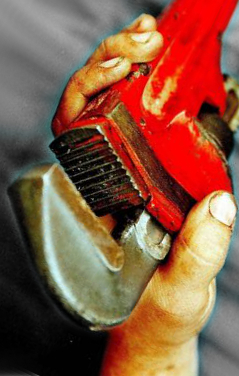Lobby fears pay boost
 Miners say new labour laws could kill bonuses, share-based compensation and other incentives.
Miners say new labour laws could kill bonuses, share-based compensation and other incentives.
In an effort to simplify payment structures and avoid costly legal disputes related to the definition of “same pay” under the Albanese government's labour hire regulations, the Minerals Council of Australia says companies will have to tighten their belts.
The lobby plans to present its opposition to the government's Closing Loopholes Bill during a Senate inquiry.
The group argues that the requirements for labour hire workers to be paid at least the same as directly employed individuals are excessively intricate and would lead to protracted litigation, making outsourcing impractical.
Tania Constable, CEO of the Minerals Council of Australia, which represents major mining companies like BHP and Rio Tinto, says that the labour hire laws would force small local businesses into competition with global giants on wages and benefits, rendering many of them unviable.
She also said that litigation through the Fair Work Commission would be the only recourse, at considerable cost to companies.
Under the proposed legislation, unions would need to apply for 'same job, same pay' orders for workplaces with enterprise agreements, with labour hire exempt for the initial three months.
Such orders would require labour-hire workers to receive at least the “full rate of pay” as their counterparts in host companies, encompassing base rates, bonuses, incentives, allowances, and overtime.
However, the Minerals Council of Australia argues that this would entail guesswork when assessing benefits with unspecified values, such as share schemes or salary packaging.
Consequently, businesses may revert to simplified enterprise agreements to minimise risk, ultimately disadvantaging employees who would lose access to bonuses and other complex terms.
The lobby group also contends that the 'same pay' test is even more intricate than the Fair Work Act's 'better off overall test,' which Labor recently sought to simplify due to its complexity discouraging collective bargaining.
They point out that the Fair Work Commission has previously taken up to a year to apply the 'better off overall test' to agreement approvals.
The lobby says leaving the extension of these orders to the discretion of the Fair Work Commission for service contractors would also compel businesses to engage in legal battles, which is deemed impractical for situations requiring urgent or time-sensitive labor, such as maintenance or safety incidents.
Grahame Kelly, Secretary of the Mining and Energy Union, has accused multinational mining firms of creating the labour hire “loophole”, and dismisses their claims of complexity as a distraction from the imminent end of an unfair yet lucrative employment model.
In another development, key crossbench senators David Pocock and Jacqui Lambie, have proposed four private members' bills that extract less contentious elements from the legislation.
These include provisions to assist emergency workers with post-traumatic stress disorder claims, aligning silica dust regulations with asbestos rules, protecting domestic violence victims, and ensuring redundancy pay in cases where large businesses are reclassified as small due to insolvency.
Senator Lambie has emphasised the urgency of assistance for first responders, while Senator Pocock described these measures as straightforward and uncontroversial compared to other parts of the bill requiring further examination.
The Australian Council of Trade Unions President, Michele O'Neil, claims that the entire bill must pass as soon as possible, as the country faces a wage crisis.
The proposed legislation also includes the establishment of an expert panel to determine minimum pay and conditions for owner-drivers in the trucking industry.
While the Minerals Council of Australia criticises this as a revival of the former Road Safety Remuneration Tribunal, several road transport organisations, including NatRoad, are supporting the legislation with certain amendments.
They seek to reduce the implementation period for owner-driver pay orders from two years to one and specify powers for the Fair Work Commission's expert panel to set supply chain requirements, such as fair payment times.
The bills will undergo a two-week consultation period before parliament resumes on October 16th.







 Print
Print